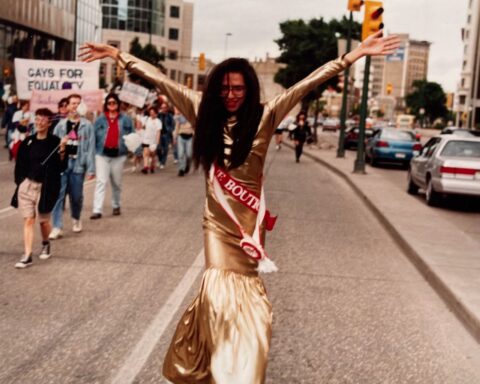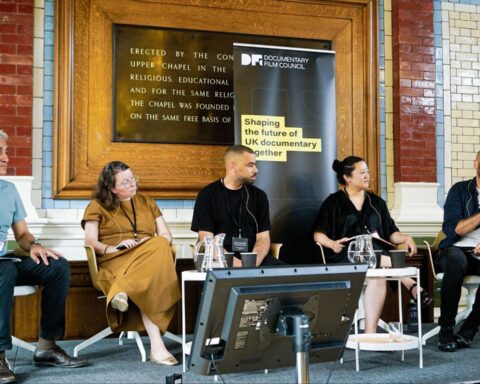World renowned Canadian documentary film producer Tom Daly died in Montreal on September 18, 2011, aged 93, after a long illness. He was probably the most important catalytic force behind Canadian documentary and experimental film. Few film artists anywhere or anytime could display as many awards as he achieved, yet he kept his mantel empty, always following John Grierson’s philosophy, “The only good film is the one you are going to make tomorrow.”
With a degree in English from the University of Toronto, Tom joined the National Film Board in Ottawa during World War II, where documentary pioneer and Film Commissioner John Grierson assigned him to Stuart Legg, one of the original members of Grierson’s British documentary film unit. Tom’s prodigious memory for detail and herculean staying power aided him in acquiring skills in film editing and documentary film narration. He learned that wartime propaganda need not be strident or dishonest, and he easily accepted Grierson’s dictum that propaganda was a form of education that operated best in the quiet light of ordinary humanism. He worked on dozens of 20-minute monthly theatrical newsreels that informed, taught and inspired millions of pre-television-era Canadians.
Postwar, the question of Whither Canadian film? was prominent as Tom became a Film Board producer. He was responsible for Unit B, a collection of brilliant but difficult English and French-speaking personalities in the 1950s and 1960s who, taking full advantage of technical innovations in cameras and sound, pioneered cinéma verité (direct cinema). This was a style of documentary filmmaking that was detached and observational, recording life as it happens in a mutual operation involving the brain, eye and heart. Its key Canadian members were Colin Low, Wolf Koenig, Roman Kroitor, Michel Brault, Marcel Carrier and Terrence Macartney-Filgate. He fought to convince tradition-bound bureaucrats that his young iconoclasts’ ideas and experiments were worthy.
Besides being responsible for nurturing the budding careers of Canada’s emerging filmmakers, Tom used a Socratic method to teach. Rather than the image of a Hollywood-imagined tyrannical producer, his gentleness was what struck a person about him first. Always soft-spoken and fiercely perceptive, he might look at a film sequence and put his comment to the director in the form of a typical question, “What is it that the image really means to say?” or, “Have you kept the all-important balance between art and message?”
The most grandiose project he produced was Labyrinthe, a multimillion-dollar effort for Expo ’67 that incorporated the myth of Theseus and the Minotaur to explore the possibilities of humans overcoming the beast within. Northrop Frye provided the intellectual basis and Tom assumed the role of editing film from many countries into a tapestry of form and content that anticipated the giant screen IMAX format a few years later.
A kind of 20th-century mystic who read the Sufi masters and the philosophy of George Gurdjieff, Tom was a perfectionist who could spot a film that was two frames out of sync. But he asked the filmmaker to find the defects. Tom believed in a philosophy of wholeness, a sense that in this mundane culture there is a much larger truth to intuit. Translated into film, this approach was more intellectual than political, and more tentative than deliberate.
In short, his NFB films reflected quintessential English-Canadian characteristics. Tom was a pillar who affected everyone whom he touched, and always positively. As he put it, “Everything is beautiful—if you get it in the right order.”









